Intel has its foundry event today and a number of big new announcements. We are getting an update to the future of Intel, Intel’s Foundry business, and process technology. We are going to cover this live-ish so please excuse typos.
Intel Foundry and Intel Products
Intel is splitting its organizations into Intel Foundry, which will service internal and external customers. Intel Products is the group that makes the designs for things like the Intel Core series, Intel Xeons, NICs, and so forth.
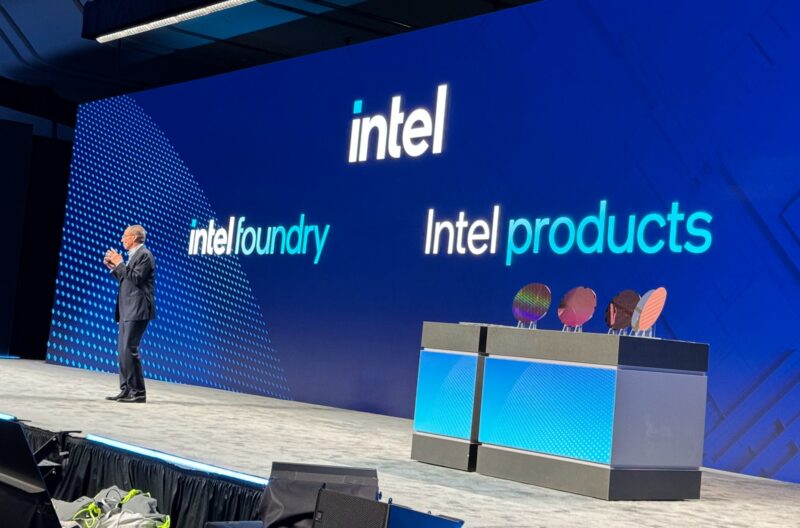
The idea is that Intel is building capacity to manufacture next-gen wafers across different geographies. These foundries and packaging centers will not solely make Intel Products’ products, but also for others.
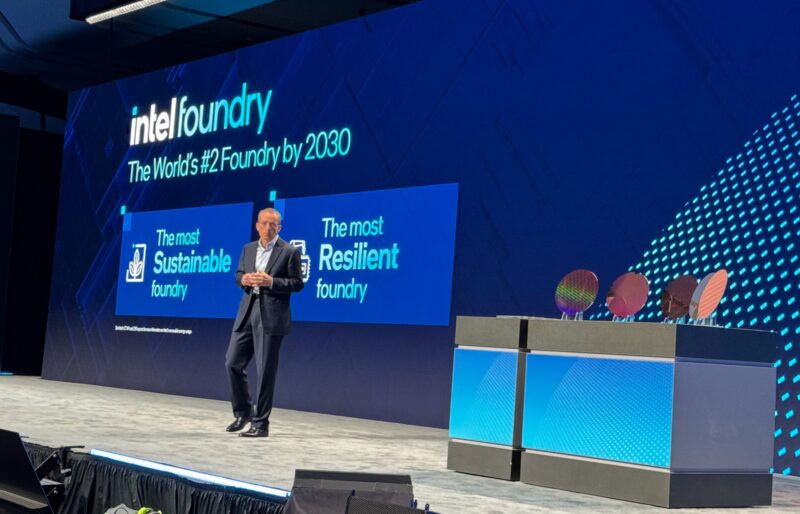
The interesting goal is that they will be the world’s #2 foundry by 2030. Other goals are to be the most sustainable and most resilient.
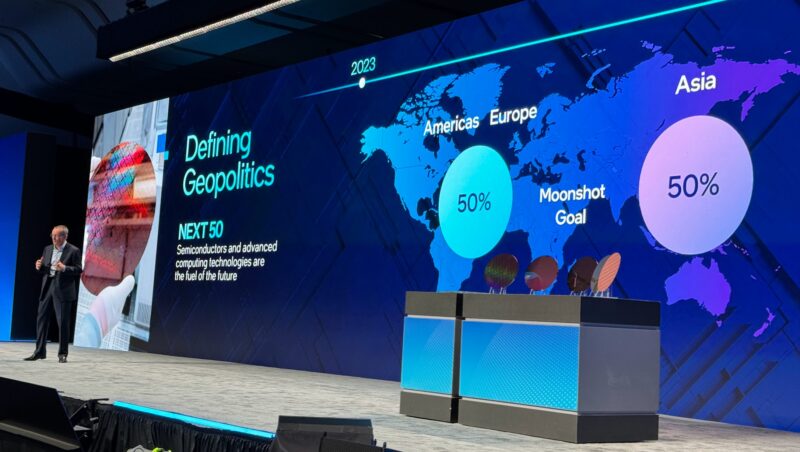
One of the key messages is about building chips in the US and Europe. Today, 80% of chips are made in Asia whereas in the early 1990’s, it was 80% in the US. The moonshot goal is to make that a 50/50 split.
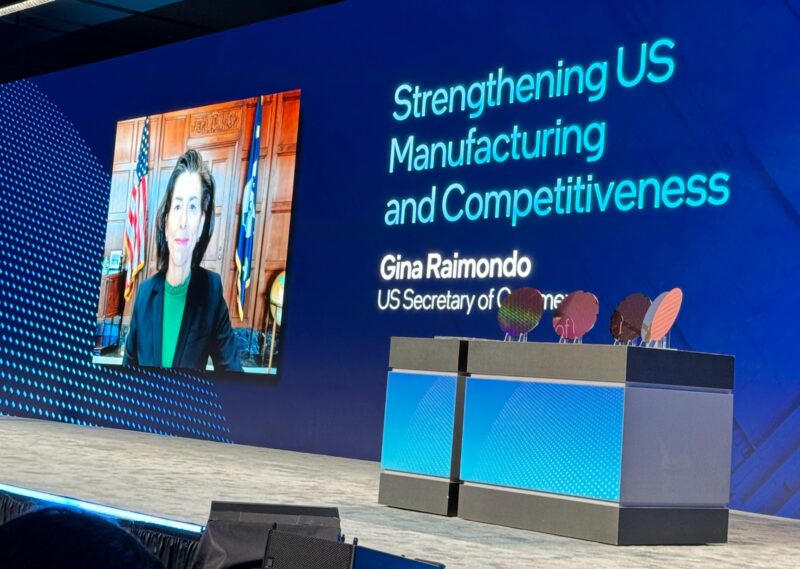
Gina Raimondo, US Secretary of Commerce did not say there will be a CHIPS Act II, but that there will need to be continued investment. Intel did not announce its CHIPS Act grant at the event, but it sounds like this is coming very soon.
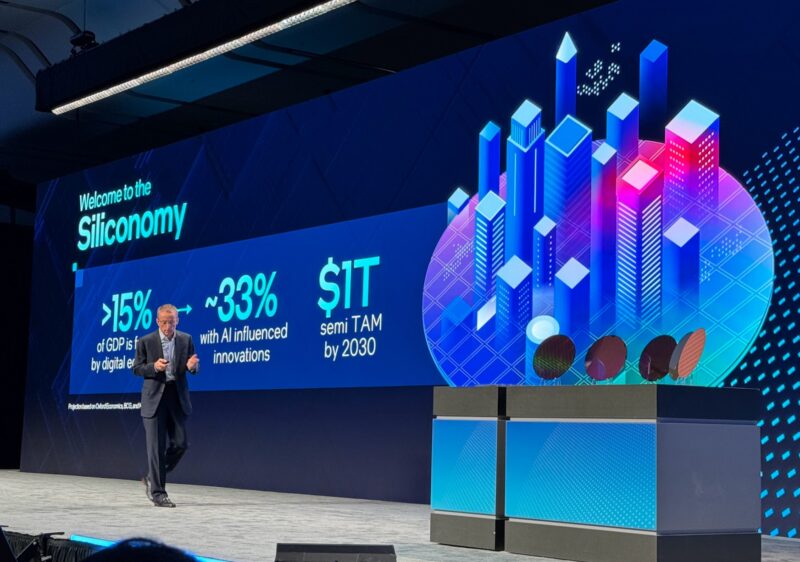
Intel says that Intel 3 is certified for high-volume manufacturing for server products later this year.
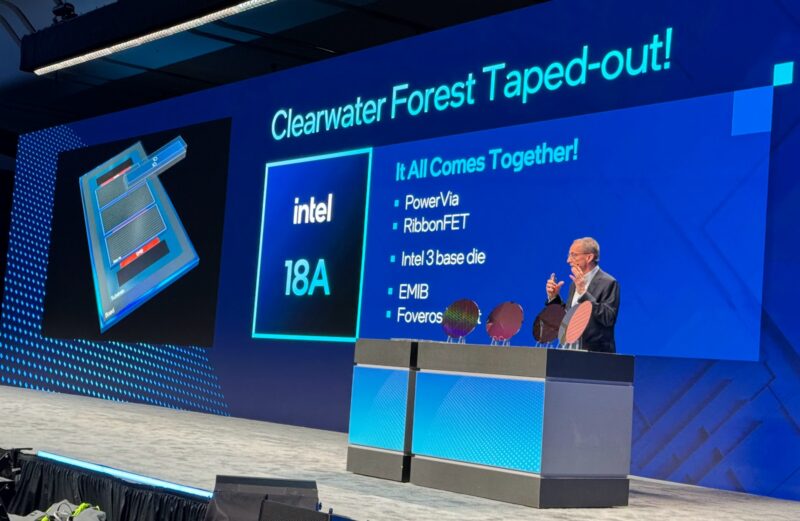
Clearwater Forest has a 3nm base die, then is using EMIB and Foveros Direct has already been taped out.
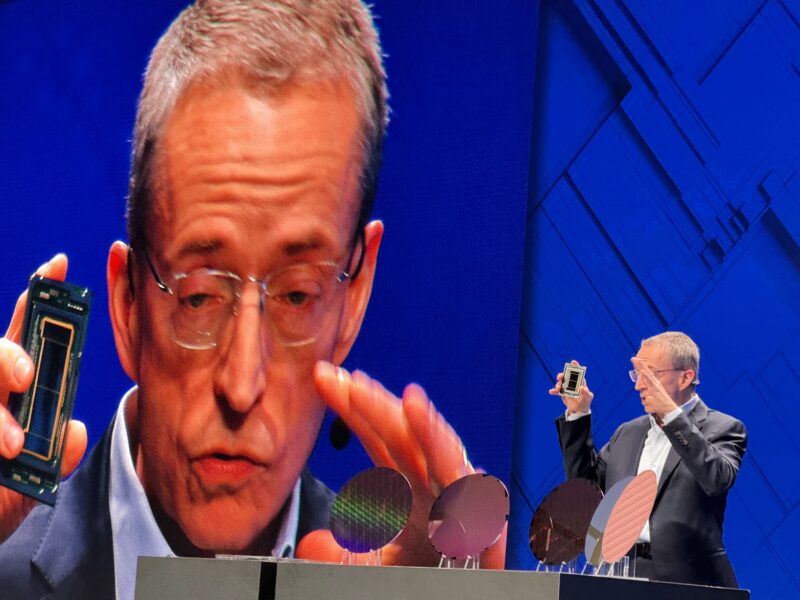
20A and 18A are on track. PowerVia and RibbonFET are coming. These are the leadership technologies Intel has been pushing for over the past few years.
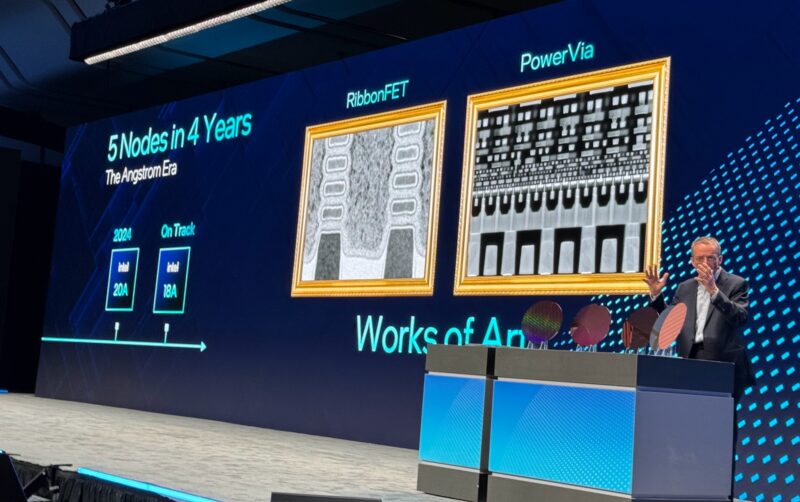
Microsoft announced that it is the newest Intel 18A customer. Big chips that are 1kW and more, are using so much power that the Intel 18A PowerVia and RibbonFET are seen as better ways to construct those high-power chips.
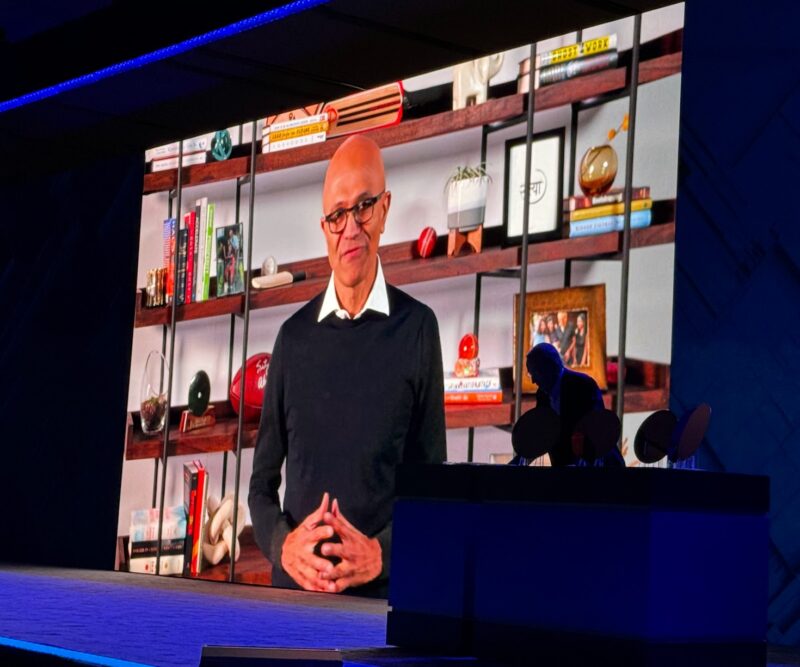
Intel has 14A in a test wafer. Intel is extending its newer nodes with updates and also adding 14A and 14A-E after Intel 18A.
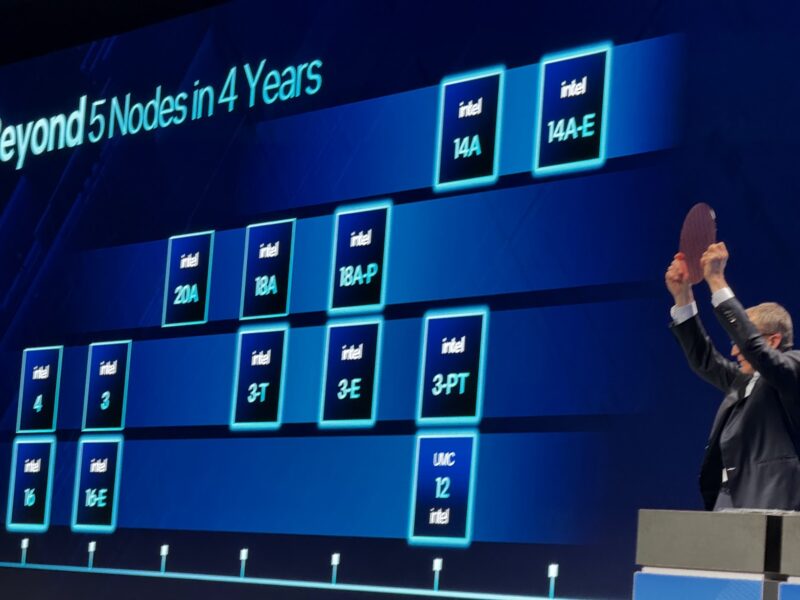
Here is the better slide of the node plan:
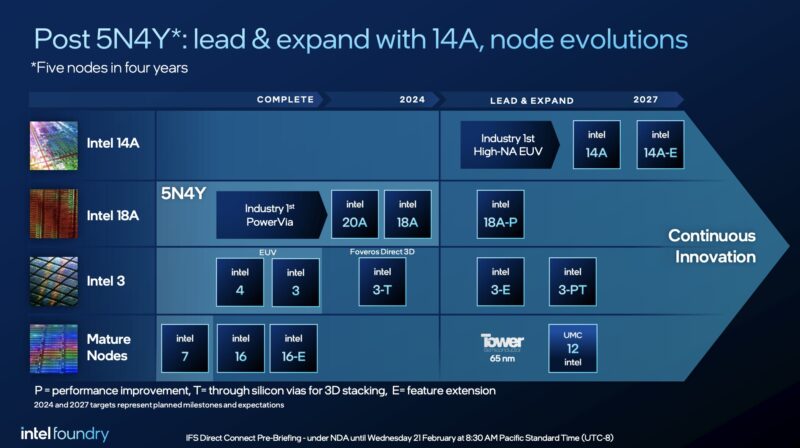
You will notice the Tower 65nm and UMC 12 on the mature nodes through partnerships.
Intel also says that it has a range of packaging options for its customers.
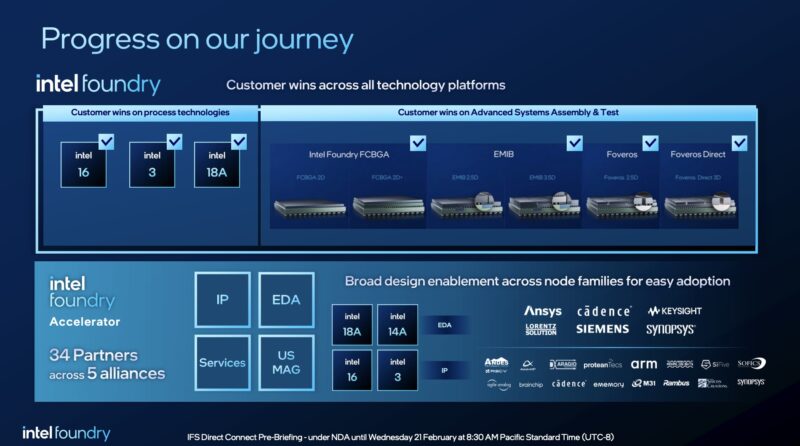
Intel Foundry now has a $15B expected lifetime value from its deal pipeline. Intel also announced that it is building out a supply chain for US Military systems.
Moving beyond reticle limits at ~800mm2.
Intel also is showing its goal for next-gen packaging.
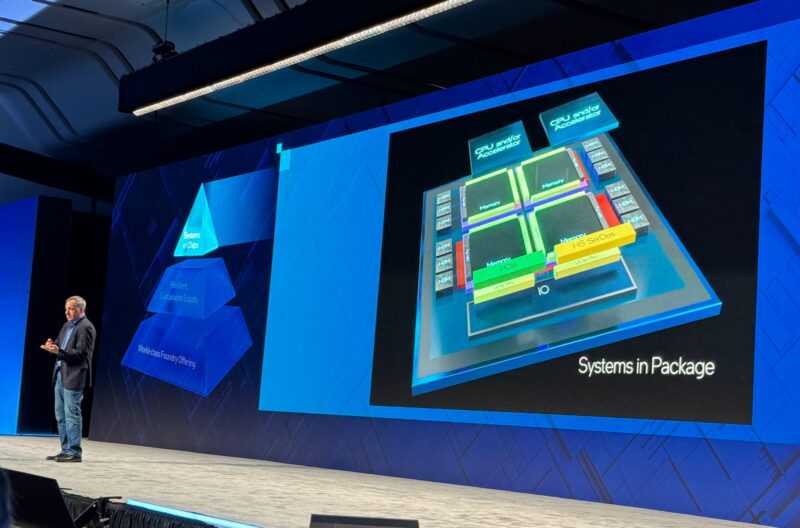
Compute, memory, accelerators, I/O, and more all in a single package.
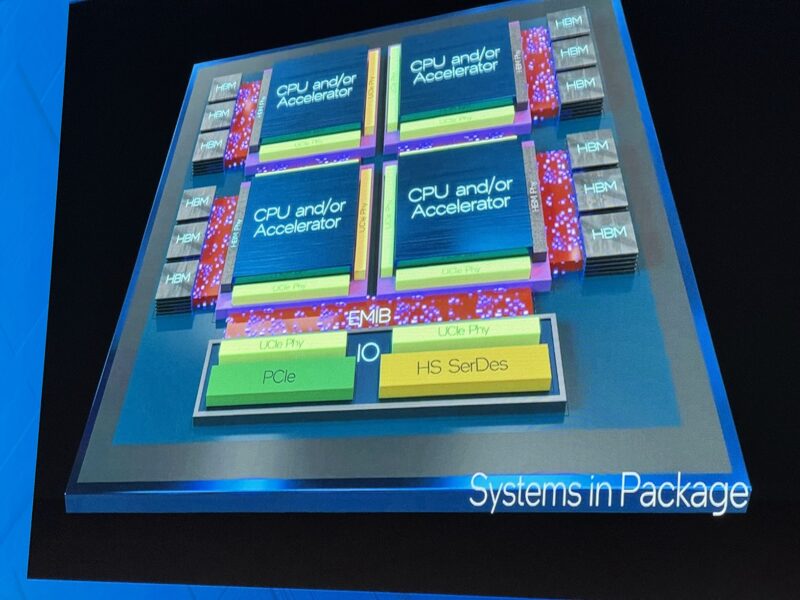
Ponte Vecchio assembly test yield is 47 active tiles and needs 95% yield.
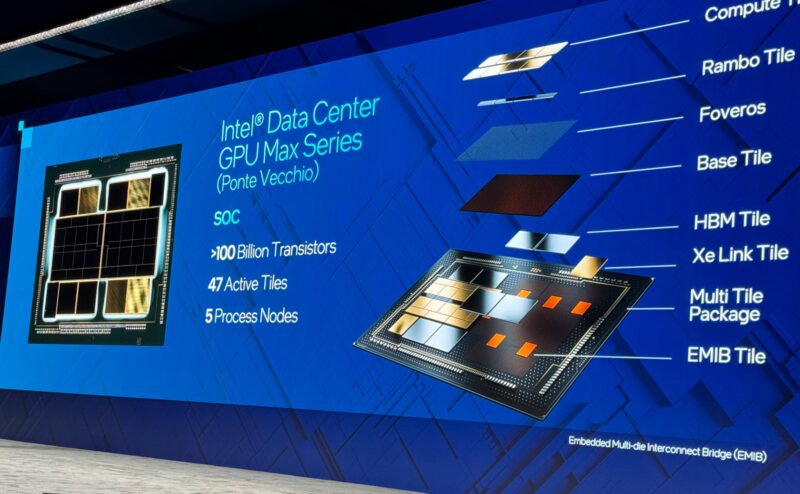
Intel sees systems of chips being built together to hit next-gen AI goals.
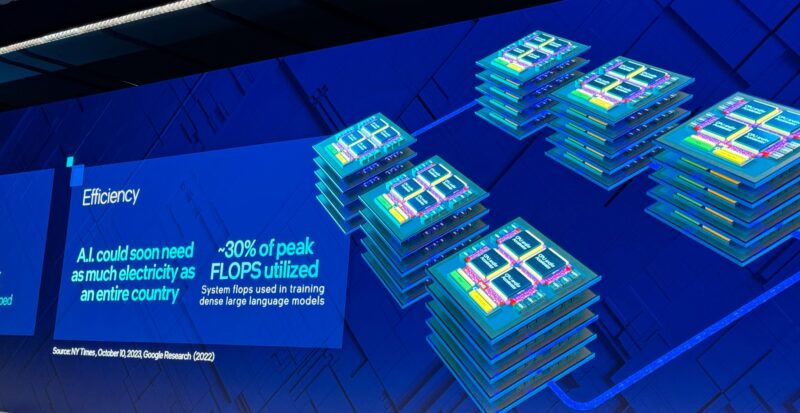
Here is the cool 6 year look at how Intel expects AI will expand in the future.
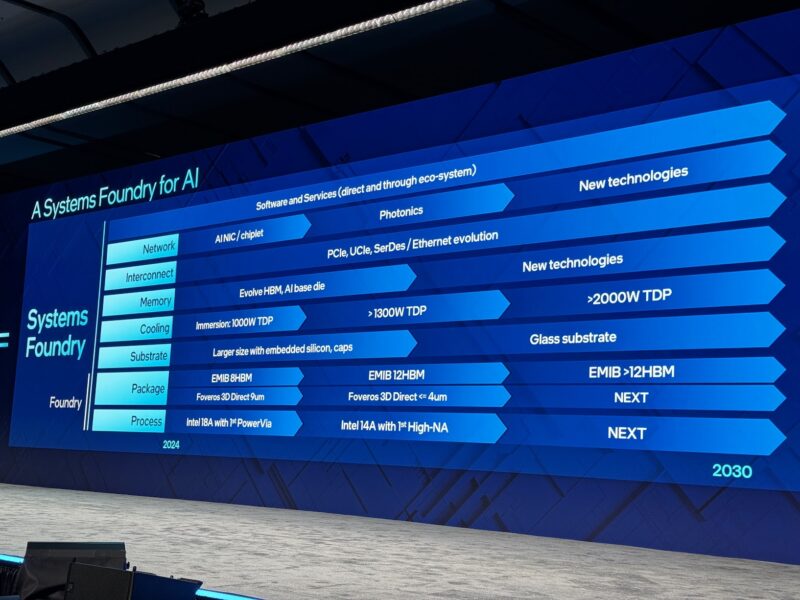
Over 2kW accelerators, new memory technologies, new interconnects, and more.
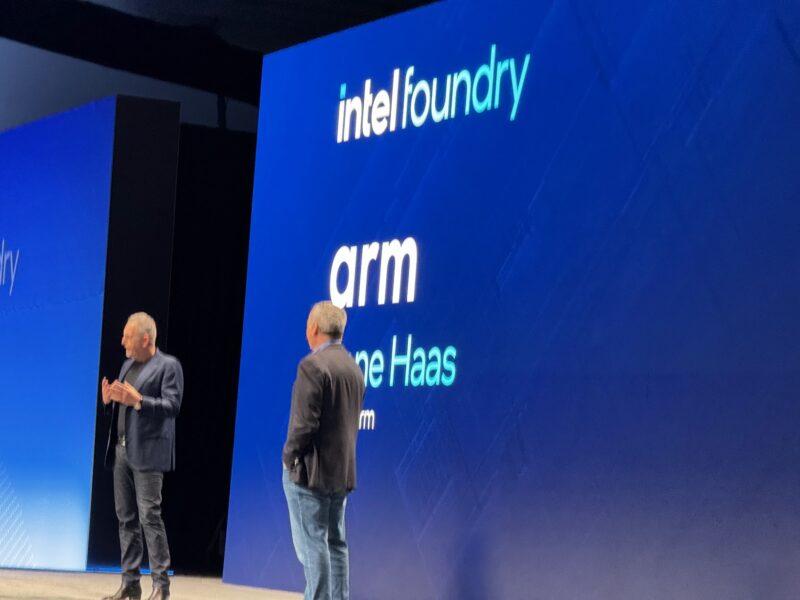
Intel Foundry and Arm now have a partnership. Rene Haas, CEO of Arm, is on stage talking about the Neoverse announcement this morning. Intel is saying Arm is the most important partner. Arm is saying that Intel 18A is great. Arm is telling folks how much better its Arm Neoverse CSS is than Intel Xeon server chips. This feels strange and Intel really needs to announce x86 chiplets that folks can integrate.
Mediatek and Broadcom are on stage. Both compete with Intel on NICs for example. Broadcom is talking about Intel’s backside power in a positive light, especially given the next-gen network switch packages..
Final Words
Lots more coming from the event today. At this point, it feels like Intel is getting folks onboard, especially with 18A. That really seems to be the focus of a lot of its headline customers and partners. The fact Intel has RibbonFET, PowerVia, glass substrates, packaging, and more it feels like folks are taking note and Intel is developing a foundry business. It would be interesting to see how the new programmable solutions group counts in the $15B pipeline. Still with Intel Foundry and Intel Products, those calling for splitting the company, or spinning the foundry business are probably salivating. It does not seem like that is where we are at, and Intel had announced this operating model previously, but it feels a bit more stark now.

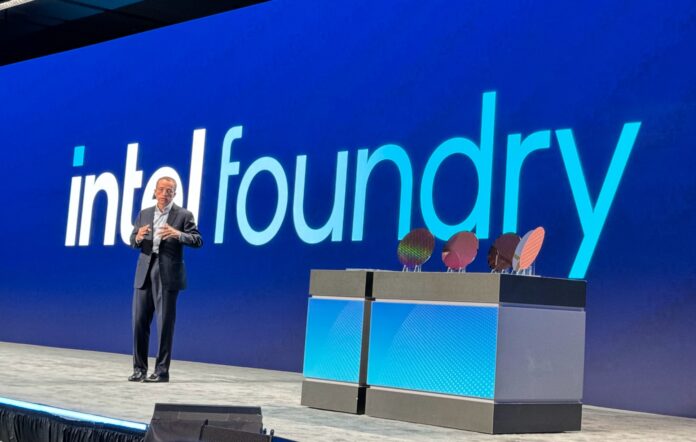
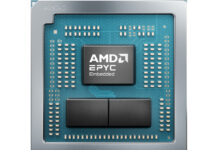

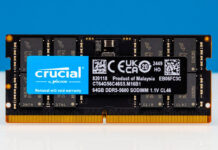
“I have a great set of tools and a nice assembly line. I will of course continue to build my cars, but I can build yours also.”
Hmmm over time the “Doublethink” / cognitive dissonance this may cause within Intel management could take a toll…Having two ISAs under one roof that are fighting it out in the data center (etc) seems highly problematic…A few interesting NDAs will surely be signed.
With Samsung Fab doing so well against TSMC it seems unlikely that AMD and ARM (à la Qualcomm) would send any business to Intel Fab (separate entity or not).
I can’t help but think that they will often be busy making Intel chips, and that others will be second in line at all times; never bumping the line ahead of scheduled fabs arraigned several years in advance. Intel would basically control when others couldn’t make their chips, with foul being very difficult to claim.
They certainly could gain business from non-competors (at least to the extent that any computer manufacturer “isn’t” a competitor) such as Cerebras and Broadcomm, maybe Apple.
I’d like to thank the American taxpayer for Making Intel Great Again in 2030 as a stretch goal.
Wish Intel all the best. Looking forward to the CHIP ACT sequel!